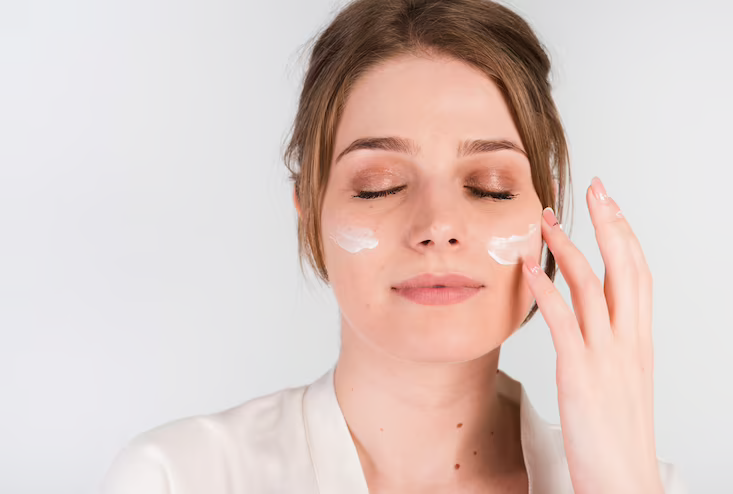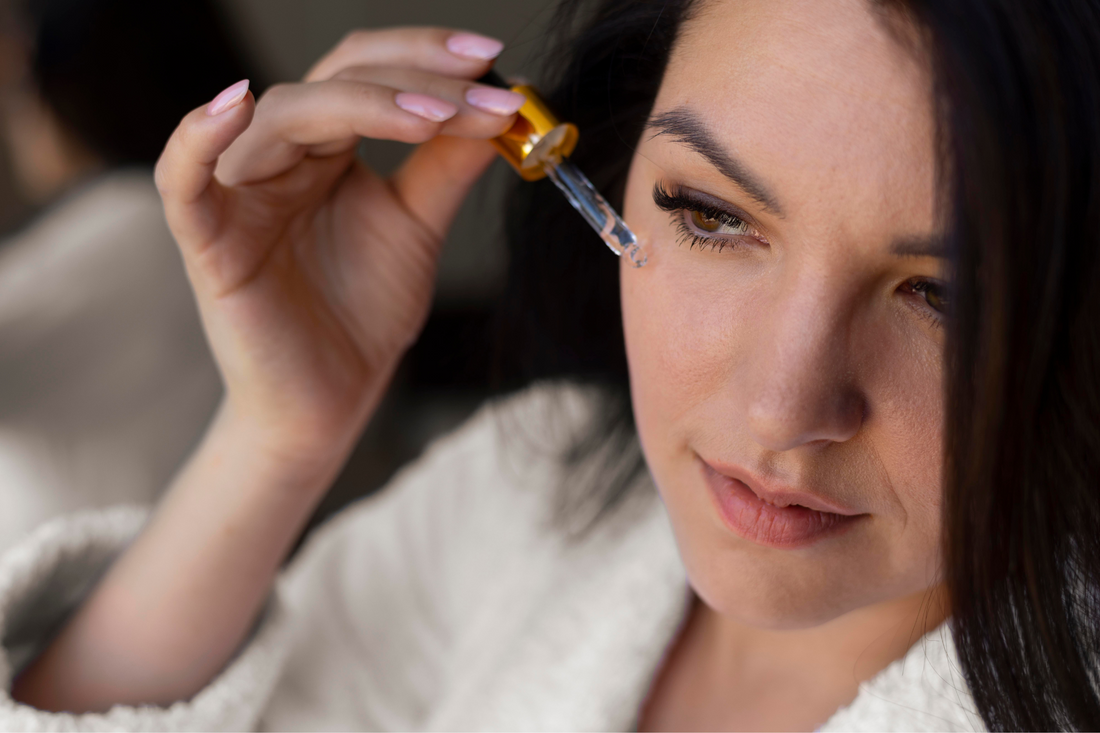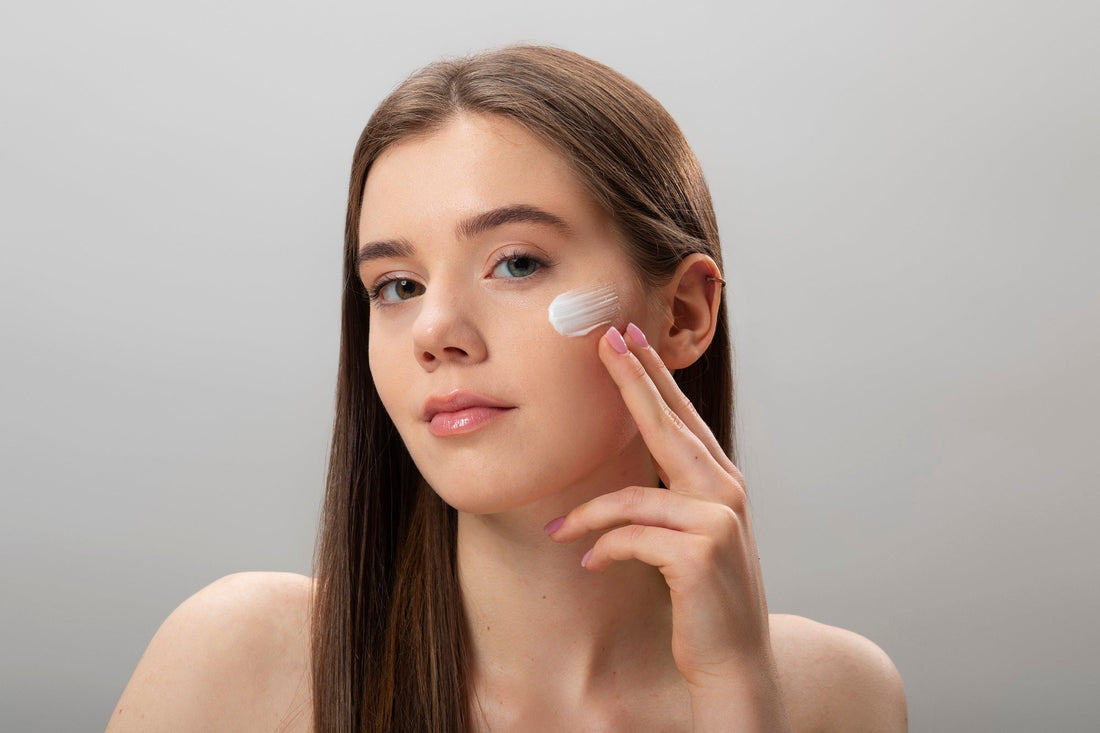Sunscreen is among the best and simplest methods to safeguard your skin's health and appearance at any age. Regular use of sunscreen protects against sunburn, skin cancer, and premature aging.
To assist you in incorporating sunscreen into your daily regimen, the following concerns should be addressed.
What is Sunscreen Lotion?
Sunscreen, sun cream, or sunblock is a topical photoprotective substance that helps prevent sunburn and, most importantly, skin cancer. Sunscreen SPF indicates the capacity of sunscreen to defend against UVB. Sunburns and skin cancer are caused by UVB radiation. UVC rays are the other two types of UV radiation. Broad-spectrum sunscreens offer protection against UVA and UVB radiation.
Best Sun Protection Cream
The following are a few most common sunscreen lotions that you must try are:
-
Sunstalker Korea 3 in 1 - Water Based Moisturizer with SPF and Serum
Click Here To Buy This Product
The finest hygiene products for all skin types are water gel-based sunscreen and serum. Sunstalker Korea 3 in 1 is an excellent method to moisturize and hydrate the epidermis. Internally, it has the most beneficial & soothing effects on the epidermis. The serum-moisturizer-sunscreen combination of this product is suitable for all skin types because it contains no hazardous ingredients.
-
ThatMatt - SPF 50 PA++++ Sunscreen
Click Here To Buy This Product
This sunscreen lotion SPF 50 PA++++ by Personal Touch Skincare has numerous benefits, including infrared and blue light protection and protection against urban and digital pollution.
How Does Sunscreen Lotion Work?
Some inorganic compounds, like zinc oxide and titanium dioxide, function as physical sunblocks. They reflect UV rays in the same manner as white paint reflects light. In addition to inorganic chemicals, sunscreens frequently include organic chemicals like avobenzone and oxybenzone. Instead of tangibly deflecting UV light, the chemical bonds of these molecules absorb UV radiation. As the bonds absorb UV radiation, the sunscreen's components gradually degrade and emit heat.
Benefits of Sunscreen Lotion and Cream
- Protects Against Harmful UV Rays
Due to ozone layer depletion, harmful UV radiation infiltrates our environment. While the sun's beams provide the body with vitamin D, overexposure without sunscreen and lotions can pose a health risk. If you use sun protection cream for your face, you can prevent the damage caused by UV radiation which can also cause skin diseases.
- Reduces Skin Cancer Risks
Your skin can lose its protective layer if exposed to UV radiation, leaving it prone to skin disorders such as cancer, particularly melanoma. Regular use of sunscreen may assist your skin in maintaining its luster and protect it from malignancy.
- Reduces blemishes on the face
Applying a considerable quantity of sunscreen can prevent skin irritation and the appearance of red veins. The sun's UV radiation frequently causes these skin disorders.
Types of Sunscreen Lotion
Sunscreen is available in two distinct varieties. They consist of
- Chemical sunscreen:
These operate within the epidermis. They absorb solar radiation and release it through a chemical reaction.
- Physical sunscreen:
Also referred to as mineral sunscreens. On the surface of the epidermis, they function as a shield to deflect radiation.
SPF (Sun Protection Factor) scale:
- SPF 15 provides 93% UVB protection
- SPF 30 provides 97% UVB protection
- Sun protection SPF 50 provides 98% UVB protection
So, SPF 30 sunscreen provides only 4% higher protection than SPF 15 sunscreen.
How to Apply Sunscreen Lotion?
Sunscreen moisturizer is a vital skin care product you must use if you have sensitive skin; reapply every two to three hours.
Sunscreen Lotion and Different Skin Types
- Dry skin
If you have dry, itchy skin, or flaky, the proper sunscreen protects and hydrates your skin from UV damage. In their formulation, consider sunscreens that include moisturizing and skin-softening emollients, like caprylic/capric triglyceride and sodium hyaluronate.
- Oily skin
If you have oily skin, applying viscous, creamy sunscreens may seem sticky, & selecting the incorrect one can lead to many skin issues. When you have oily skin, your best options for UV protection are water-based, powdered, or matte-finishing moisturizers; ultra-light products also work effectively for oily skin.
- Normal skin
Since you have normal skin, your options are relatively straightforward compared to those with other skin varieties. Choose a high-quality, broad-spectrum sunscreen regardless of whether you prefer cream, aerosol, roll-on, or stick.
- Combination skin
Unlike those with typical skin, those with combination skin must contend with both moist and dry patches on their faces. Go for sunscreens that are hydrating but not oily for maximum effectiveness. These sunscreens do not pill and create an excellent foundation for cosmetics.
Conclusion
Although standalone sunscreen is more efficient than combination sunscreen moisturizers, you should choose the product to ensure daily application. Ensure you choose a product that has been developed especially for the face. These Acne-prone sunscreen moisturizers are less likely to obstruct pores and cause acne outbreaks.













